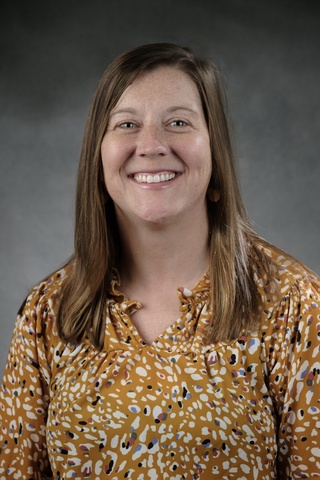Amanda Randolph, a third-year University of Iowa doctoral student in Educational Leadership, is one of 42 graduate students nationwide recognized as a 2025 David L. Clark Scholar.
The David L. Clark National Graduate Student Research Seminar in Educational Administration and Policy is a single-day event at the American Educational Research Association (AERA) Annual Meeting in Denver, Colorado on April 22. This will entail panel discussions, small group mentoring sessions with top researchers in the field of educational administration and policy research, as well as networking opportunities.
“Being named a 2025 Clark Scholar will help me transition from practitioner and doctoral student to researcher and scholar,” says Randolph. “This distinction will help me connect and collaborate with other individuals who are passionate about preparing educational leaders in innovative ways which will benefit their students and schools.”

In order to be selected as a Clark Scholar, a submission of a blind research proposal is required. Randolph’s research explores how poverty is a pervasive issue in the United States, impacting students socially, emotionally, and academically.
The qualitative study examines the facilitation and impact of a "resource room" in a Midwestern high school. The space was founded in 2017 to address basic needs by offering students food, clothing, and hygiene products at no cost. The study explores the role of school leaders, community partnerships, and volunteerism in mitigating the effects of poverty.
Randolph believes that this research underscores the inadequacy of focusing solely on food insecurity and emphasizes the broader spectrum of basic needs. By providing insights into the operational and emotional impacts of in-building resource rooms, the study advocates for creative solutions to promote equitable access and academic success for vulnerable students.
Following Randolph’s graduation, she plans to seek a tenure-track or clinical faculty position at a university.
“I am passionate about teaching future educators and school leaders that their hearts are just as important as their minds,” says Randolph.
